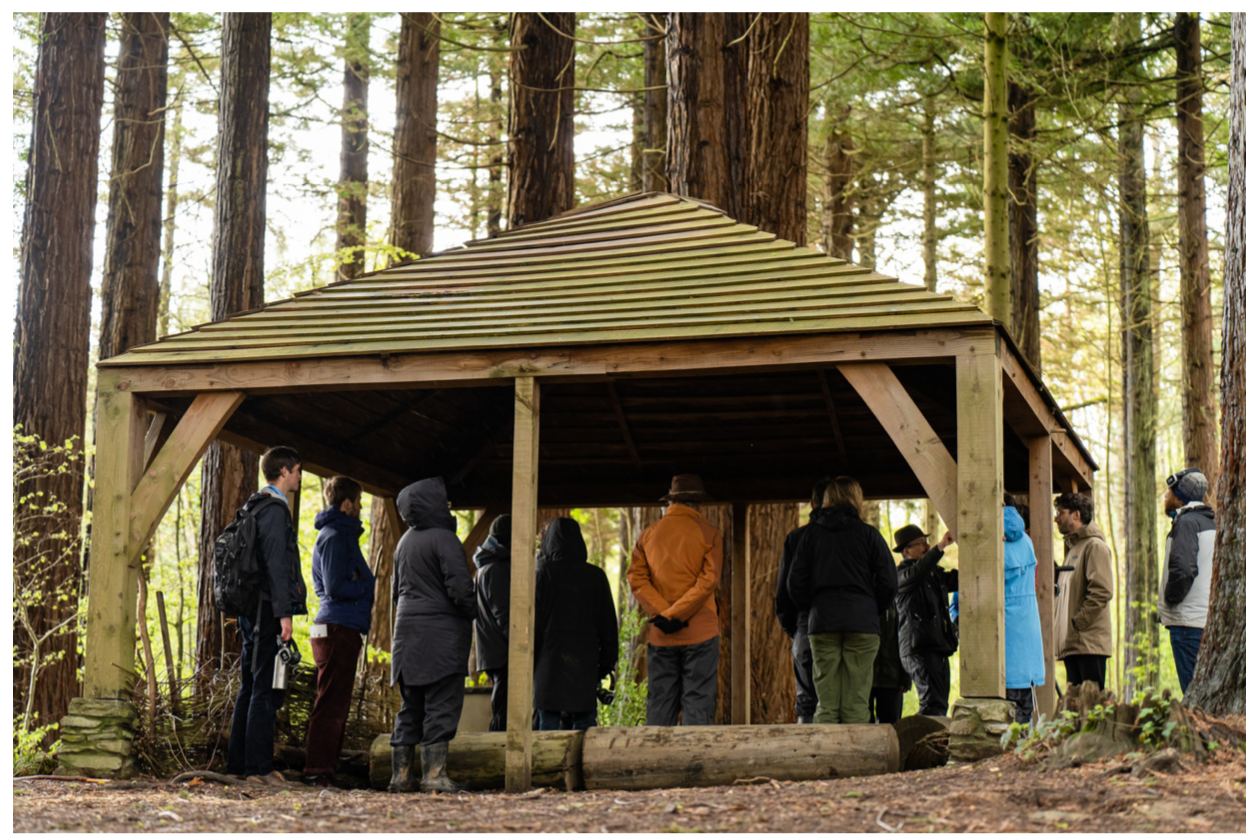Education for Head, Heart and Hands
Basic information
Project Title
Full project title
Category
Project Description
A professional training for educators engaged in higher education (e.g. university teachers, researchers and staff) providing deep experiences around sustainability learning and that shall lead to a transformative international community of practitioners to regenerate higher education in Europe. The transcending rationality for this holistic experience is inspired by the Schumacher College (UK) that provides education for head, heart and hands, and will grant innovative educational practices.
Geographical Scope
Project Region
Urban or rural issues
Physical or other transformations
EU Programme or fund
Which funds
Description of the project
Summary
Climate change, complex political scenarios, an infinite global economy within a finite planet and an increase in mental health issues are some symptoms of what the Austrian systems thinker Fritjof Capra calls “a crisis of perception”. According to him, amongst the numerous and systemic solutions, there is an urgent need to address the educational challenges of the 21st century through alternative education capable of transforming the threats to our common future.
The conventional educational system focuses on preparing students for a competitive job market, rather than to work for sustainability, aesthetics and inclusiveness - little attention is given to individual, societal wellbeing and planetary health. Education is synonymous with exercising rationality, favouring still theory over practice while the human body remains excluded from the process. Worldwide, humanity decision-makers have graduated from the most prestigious and renowned universities, therefore it is relevant to inquire about the nature of leadership training.
This project is about experiential learning for sustainability, new ways of conveying conversations about education, bridging urban and rural settings and working with university staff who lead such initiatives, as teachers, lecturers, managers or researchers. It aims to deliver a singular experience where these actors find themselves in a collaborative environment for a series of meaningful dialogues, embodied work and community living in the countryside of Portugal.
This initiative is inspired by Schumacher College, an English higher education institution specialised in ecological thinking and living. Visiting teachers are philosophers, scientists, systems thinkers and practitioners from all knowledge fields, from all over the world. With the motto "Education for Head, Heart and Hands", Schumacher had over 30.000 students over its 30 years, for master's degrees and short courses.
Key objectives for sustainability
Living an urban life can make us forget about our reliance on ecosystems in the most basic ways. For instance, consumers rarely know where their food comes from. A recent trend of bringing nature to cities should also encompass universities as important agents of urban transformation. The founder of Schumacher College, Satish Kumar wrote in his book Soil, Soul and Society: "Students coming out of schools and universities know nothing about making, growing, cooking, building and manufacturing. Such manual activities are supposed to be performed by uneducated peasants and workers somewhere far away, in China or Vietnam or Indonesia or Morocco or some other distant land. This is a recipe for a disastrous future".
Sustainability depends not only on our intellect generating innovative ideas, but also on our hearts capturing meaning and communicating the right attitude to overcome difficulties, and our hands to craft, seed, plant, sprout, prepare, bake, feed, adapt, carry and transform. The project allows teachers, lecturers, researchers and education managers to reflect together about which kind of higher education is required to build a sustainable future for people and the planet. For this reason, the retreats will be hosted closer to nature where participants are offered the opportunity to pause their routines and reconnect to the natural and communal world.
The learning experience at Schumacher College is, for many, proof that our education and profession should not be divided from the other aspects of our lives. Activities offered will show that scientific data can be better assimilated if the whole body is involved in learning: participants will go on a Deep Time walk to get a measure of how young our species are, and formulate their personal philosophy to live harmoniously, besides learning with nature's function, forms and diversity. That is living sustainability - it will revolutionise universities.
Key objectives for aesthetics and quality
Most of this project is expected to happen in farms and other peri-urban green spaces with adequate infrastructure to receive our target audience. This is not only a way to rethink urban ways of living, looking for regenerative approaches that can increase the liveability of cities, but also to increase awareness of human intrinsic connection to nature. Sustainable solutions are beautiful “by nature” and their efficiency requires cross-sectoral collaboration.
In cities, natural spaces provide multiple ecosystem services, in which aesthetics is considered a cultural service since "benefits derived through ecosystems are considered beautiful, appealing or visually appreciated, etc" (UN Water, 2018). Even though this proposal does not include a concrete physical transformation, the aesthetic dimension of this initiative consists in reconnecting higher education stakeholders with nature. This collaborative quality amongst participants also should be encouraged towards the natural world.
Another aesthetic objective of the programme is related to the selected activities where the use of facilitation methods is combined with hands-on experiences (i.e. gardening, walking in the wilderness, cooking, etc), which enhance the quality level of the participants’ experience. This will be supported by the practice of mindfulness with the docents, so that a different sort of nature observation can flourish and make visible certain patterns that allow Biomimicry to be practised - making nature a “mentor, model and measure” in support to people “creating conditions conducive to life”.
Urban development has a lot to learn with rural settings, in this regard. The use of Nature Based Solutions, landscape interventions to strengthen ecosystem functions which provide multiple benefits, are advancements that can be applied and improved on university campuses, built by teachers and students in a way to make learning truly inspired by nature.
Key objectives for inclusion
Mental health issues are rapidly growing amongst university students (Allen et al., 2022). Nevertheless, there is increasing evidence that gardening and activities in green areas benefit mental and physical health, with the potential to relieve pressure on public health systems (Thompson, 2018). Community gardens have been popular around the world and they could equally benefit academic communities, improving participation and bringing the enhancement of biodiversity on campus, spaces for open-air classrooms, providing material for science classes and most importantly, providing fresh, organic vegetables for university canteens.
This project offers guidance to think about the previously mentioned possibilities. bottom-up approach for sustainability learning, challenging hierarchies and inviting to invert the typical knowledge transfer from "experts" to "non-expert" or from "older to younger". Our public will work together in a garden, wash dishes, help with cooking and cleaning as part of the learning. It is expected that the experience awakens an aspiration to see the university community as a wealth that if valued, generates benefit.
On campus, a vegetable garden is also a meeting point, an open-air laboratory to test methods to regenerate soil and water cycles, and an environment where collaboration can be encouraged to be part of the academic culture. For instance, the university kitchens could engage students in food preparation through a volunteer programme where a student exchanges a couple of hours learning and practising his/her cooking skills in exchange for the meal prepared, and in service to the wider community.
Such changes in academic management are only possible if they are seen as part of the learning and recognised by professors, lecturers, researchers and managers who persuade other actors politically. Such initiatives become available to be studied and improved.
Physical or other transformations
Innovative character
The project involves educating leaders of higher education in living sustainably to transfer its benefits to their work at European universities. University staff are the main target for the project, nevertheless, their learnings will bear fruit for their students. Teachers and students can partner for the co-creation of learning experiences, if teachers are open to it. They are the participants and protagonists who are often trained to have such a defined idea of how classes and knowledge transmission should look like at universities and that at this moment, they deserve to be invited to change perceptions in a gentle, creative and careful way.
Initiating a process of building other ideas about environmental sustainability through a different sort of learning is here highlighted as the fundamental element of this project. A refreshed attitude of humans as part of nature and a renewed sense of belonging are some of the expected outcomes of the retreats. Education should be participatory, indirectly impacting groups of students that would highly benefit from practical hands-on projects on campus (i.e. mental health issues), and directly groups of professionals who tried to integrate alternative education into their teaching but could not find support.
The training retreats will be conceptualised/organised by alumni from the Schumacher College, of which some are still students now in other contexts and probably younger than the main target group. Building on the intensive own learning experience and holistic educational training, a new environment of co-creation and embodied mutual learning shall be offered that will make this project unique in its approach, inclusive as it goes beyond stereotypes, beautiful and sustainable as it fosters inspirational and supportive new relationships that can strengthen each participant to act upon the Bauhaus values in their respective working and living contexts.


